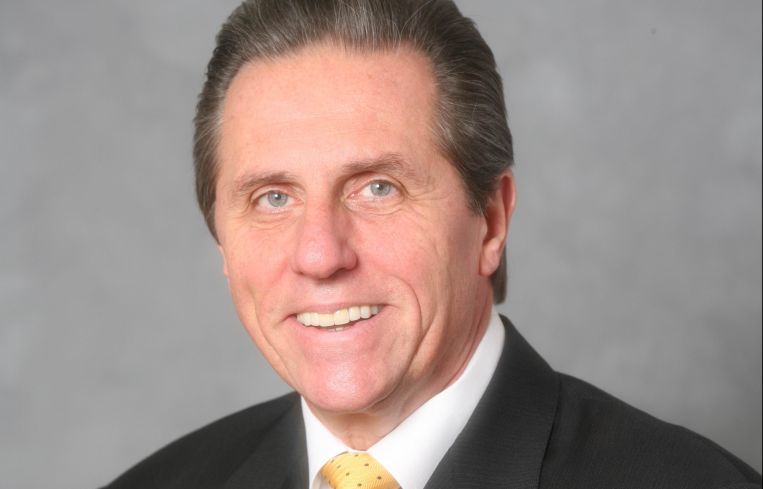Was the Signature Shutdown a Big Bank Robbery?
Our guest columnist chaired the bank's commercial real estate committee
By George Klett June 17, 2024 12:12 pm
reprints
I could argue the point that the shutdown of Signature Bank by the FDIC was not necessary. I have said that in previous op-eds, and Barney Frank (of Dodd Frank Act fame) was quoted as saying the same thing.
The fact is that the FDIC did shut down Signature, and they auctioned off the loan assets. I could argue that the method and terms of the auction process was highly unusual. Why? Was there an objective procedure to pick the company to handle the auction? Did the FDIC dictate the terms of the auction?
In a FDIC press release dated June 7, it gives some detail of the terms of the auction. Interestingly, some important facts were not detailed in the press release. In three of the sales, it states that “leverage: N/A.” In one of the sales it states “Leverage: 1 to 1.” Did the FDIC provide financing? Under what terms? Was it 100 percent of the sale price? Amazingly, the release did state that the FDIC maintained an ownership interest in the loans. In two of the packages, they maintained an ownership interest of 80 percent and in the other two it was 95 percent.
The structure of the auction was bizarre and resulted in a distressed price for the portfolio. In one package, the FDIC’S press release stated that the loans were all performing with an average loan to value based on their appraisal of 59 percent. Yet it was sold at a 37 percent discount. Why? The four packages were sold at severe discounts — in my opinion, well below market value. The fact that the FDIC took an ownership interest valued at over $12 billion according to the terms outlined in their press release is extremely unusual.
Is it actually legal? Typically, when the FDIC closes a bank it makes a deal with a larger bank to take over the assets and liabilities of the bank being closed. There is a smooth and quick transition with no depositors being hurt. The most recent example is J.P. Morgan Chase assuming First Republic Bank. Why the unusual action with Signature Bank? Did the FDIC pay for its ownership interest? Where is the consideration? Did they actually just take it?
I sent a letter to then-FDIC Chairman Martin Gruenberg in May 2023 suggesting that the FDIC keep some of the Signature Bank CRE staff to manage and unwind the loan portfolio in a commonsense, organized fashion over a couple of years. This would result in a substantially higher price for the loans. The CRE staff knew the borrowers and the terms of the mortgage agreements. The approach the FDIC chose resulted in a distress sale which the buyers of the loans took advantage of, buying the loans at a highly discounted price at a significant profit for them. Good for them, but not the bondholders or shareholders.
I do not know any inside information, but using some knowledge and common sense, consider the following: Signature Bank had over $60 billion of loan assets. Over $30 billion were loans not on CRE. They were probably worth over 90 percent of their face value. Let’s assume that they were sold at 50 percent ($15 billion). The CRE loans imputed value based on the FDIC’s press release is $14.897 billion ($2.466 billion from buyers and $12.431 billion FDIC’S ownership interest). Therefore, the total received with very conservative assumptions is $30 billion. Add to that the fact that, during the time prior to the sale, the FDIC probably collected over $2.5 billion from principal and interest payments on all the loans.
Where is the money? It should go to creditors, bondholders, preferred shareholders and shareholders.
The FDIC has not disclosed how they paid for the ownership interest in the CRE loans, what amount of money they received prior to selling the assets, where the money is from the sale of all the assets, and how and when it is going to be distributed.
Let’s just assume a really absurd scenario. In round numbers, the total amount of funds received from the preposterous actions that the FDIC took amounted to $30 billion. Let’s assume that the FDIC expenses — creditors, bondholders, preferred equity — totaled 75 percent ($22.5 billion). Therefore, the remaining $7.5 billion would amount to over $100 a share for the stock. If you want to be more ridiculous, assume only 10 percent of the funds are available for the shareholders. That would amount to almost $50 a share. So far the shareholders have received $0.
Should there be an investigation by the FBI and Congress? There have been thousands of bank robberies over the centuries. Bonnie and Clyde, Jesse James and Willie Sutton were some of the more infamous. When someone asked Willie Sutton why he robbed banks, he answered “because that’s where the money is.”
In this modern age, there are more assets in the banks besides money. Can a government agency just declare a bank has poor management and then take an ownership interest in its assets without paying for them? Jamie Dimon and Brian Moynihan, could your banks be next? Probably not, but beware. If they have the power, strange things can happen!
George Klett is the president of New York Real Estate Capital Corporation and was chairman of the commercial real estate committee of Signature Bank.



